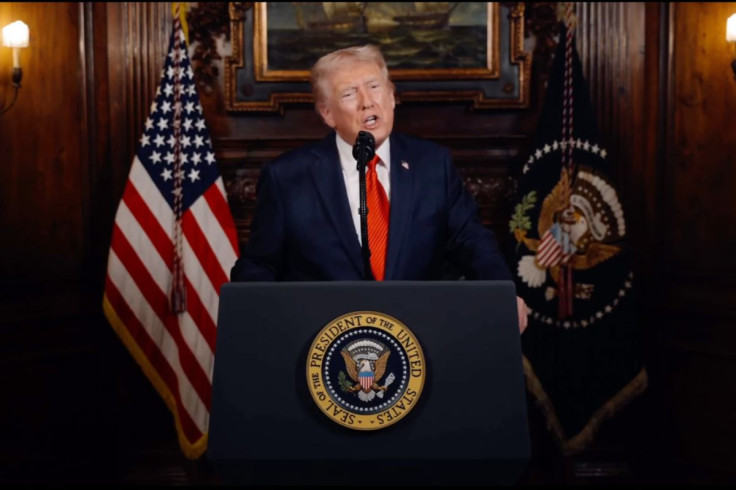Saudi Crown Prince Signals Potential $1 Trillion Investment in the US — Key Takeaways
MBS's $1 trillion investment pledge highlighted his meeting with Trump, signaling stronger Saudi-US economic ties

Saudi Arabia's Crown Prince Mohammed bin Salman (MBS) arrived in Washington, DC, on 18 November 2025, for crucial discussions aimed at strengthening the Kingdom's relationship with the United States. The most prominent statement from the White House was MBS's pledge to invest up to $1 trillion in the US, signalling a significant shift in economic engagement.
US President Donald Trump welcomed MBS, expressing his appreciation: 'It's an honour to be your friend, and it's an honour that you're here.' In response, the Crown Prince indicated that Saudi Arabia was open to joining the Abraham Accords, the historic normalization agreements between Israel and Arab nations.
While the Abraham Accords, signed in 2020, include Israel, Bahrain, the United Arab Emirates, and Morocco, MBS reiterated his desire to include the establishment of a Palestinian state in the framework. He emphasised the importance of a clear path towards a two-state solution, highlighting the Kingdom's broader regional ambitions.
The Run-up to the $1 Trillion Investment
Earlier in 2025, Trump announced a strategic partnership with Saudi Arabia to foster economic prosperity, with MBS pledging an initial $600 billion investment across sectors such as security, defence, technology, and healthcare.
During Tuesday's talks, it became evident that the $1 trillion figure was more aspirational than definitive. MBS told President Trump that Saudi investments in the US could approach the $1 trillion mark. Trump expressed his support, stating he would work closely with the Crown Prince to help realise this goal.
Key Agreements and Strategic Initiatives
According to a White House press release, the leaders signed several agreements and memoranda of understanding (MOUs) to deepen cooperation:
- Civil Nuclear Energy Cooperation: The Joint Declaration on the Completion of Negotiations establishes the legal framework for a long-term, multi-billion-dollar nuclear partnership with Saudi Arabia.
- Critical Minerals Framework: This enhances collaboration to diversify supply chains and align strategic mineral development efforts.
- Artificial Intelligence (AI) MOU: The landmark AI agreement grants Saudi access to US technological systems while safeguarding US innovations from foreign influence, ensuring America's leadership in AI development.
In addition, a new US-Saudi Strategic Defence Agreement (SDA) was signed, strengthening the countries' eight-decade defence partnership and bolstering regional deterrence.
Trump indicated that more initiatives are on the horizon, with both sides planning to intensify engagement on trade issues. Focus areas include reducing non-tariff barriers, standard recognition, and creating a more favourable investment climate.
Furthermore, the US Treasury Department and Saudi Ministry of Finance agreed to deepen cooperation on capital markets technology, standards, and regulations, aiming to strengthen their financial partnership.
Human Rights and Diplomatic Considerations
During the press conference, a journalist raised concerns about human rights, particularly the 2018 killing of journalist Jamal Khashoggi at the Saudi consulate in Turkey. Trump responded that Prince Mohammed 'knew nothing about it,' dismissing the question and saying, 'And we can leave it at that. You don't have to embarrass our guest by asking a question like that.'
Ambitious Economic Goals
The pledge of up to $1 trillion emerged as the centrepiece of the Trump-MBS meeting. If realised, this level of Saudi investment could significantly expand US exports, reduce trade barriers, create jobs, and foster long-term economic growth. The move signals a strategic shift, with implications for bilateral relations and global markets.
While details remain to be finalised, the pledge underscores the deepening economic ties between Saudi Arabia and the United States, with potential benefits for American industries and the broader economy.
© Copyright IBTimes 2025. All rights reserved.





















